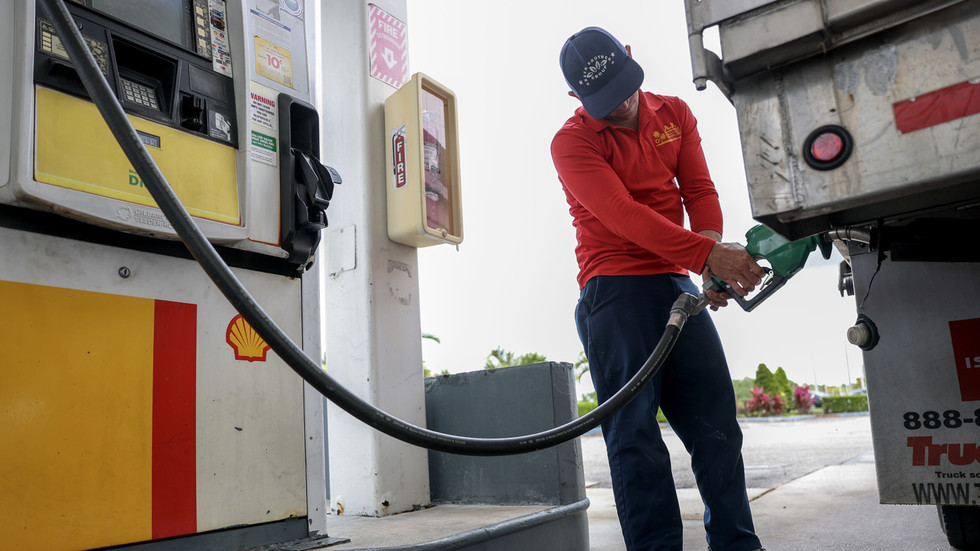European Union sanctions targeting Russian-linked oil supplies have triggered a surge in global diesel prices, with industry leaders warning of long-term market pressures. TotalEnergies CEO Patrick Pouyanne cautioned that Brussels’ latest measures, part of its 18th sanctions package since Russia’s 2022 invasion of Ukraine, risk reshaping energy supply chains and sustaining higher costs for consumers.
Implemented last week, the EU’s restrictions now ban imports of all oil products processed from Russian crude—even if refined outside the bloc—while slashing the price cap on Russian oil to $47.60 per barrel. Additionally, over 100 vessels accused of forming a “shadow fleet” to evade earlier sanctions were blacklisted. These steps aim to curb Moscow’s fossil fuel revenues but have intensified competition for alternative diesel sources.
European diesel futures recently reached $110 per barrel, according to Pouyanne, as traders scramble to secure shipments from more distant suppliers in the Middle East and U.S. Gulf Coast. “Longer shipping routes mean higher logistics costs, which will keep diesel prices elevated for the foreseeable future,” he noted during a quarterly earnings call. The CEO emphasized that the ban on fuels processed from Russian crude at international refineries—such as India’s Vadinar facility, partly owned by Russia’s Rosneft—has disrupted an estimated 600,000 barrels per day of diesel previously flowing into Europe.
Analysts warn the policy could strain a market already contending with tight supplies. Many European refineries have shifted from Russia’s medium-sour Urals crude to lighter U.S. grades, which produce less diesel per barrel. This technical challenge compounds existing shortages in the EU, which sourced over one-third of its diesel from Russia prior to the Ukraine conflict. Economists note the bloc remains structurally dependent on imports, raising concerns that the sanctions might disproportionately harm European industries and households.
“The market seems to have underestimated the structural impact of these measures,” Pouyanne remarked, suggesting the sanctions create deeper supply-chain vulnerabilities. The EU’s earlier bans on direct Russian oil imports had already rerouted trade flows, with India and China absorbing discounted Russian barrels. Now, refined products face similar realignments, testing Europe’s ability to secure adequate diesel for transport, manufacturing, and agriculture.
Moscow has repeatedly condemned the sanctions as “economic warfare,” arguing they harm Western economies as much as Russia’s. Kremlin spokesperson Dmitry Peskov recently described the measures as a “double-edged sword” that would exacerbate inflation in supporting countries. With diesel prices accounting for nearly 40% of global oil demand, the EU’s latest moves highlight the fragile balance between geopolitical objectives and energy security.
